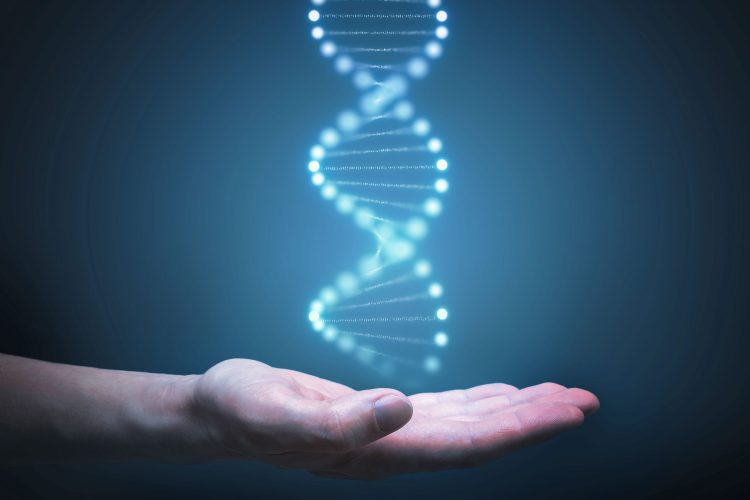Le premier octobre était la journée internationale des aînés. Quelle belle occasion de souligner que pour la longévité en santé, ce n’est pas la génétique le facteur le plus important, mais les saines habitudes de vie! Voici une analogie qui vous permettra de mieux comprendre ce sujet crucial pour la prévention.
Qu’est-ce que la génétique ?
La génétique est la science des gènes : la science de ce qui est encodé par l’ADN des espèces vivantes. L’ADN constitue la base du langage génétique; les lettres et les mots qui permettent d’encoder toute l’information essentielle à la vie. L’ADN code ainsi les mots qui permettent de composer des gènes, qui eux représentent des chapitres de livres. Par exemple, l’ensemble des gènes codant pour les défenses antioxydantes des cellules constitue un chapitre du grand livre sur la maintenance et l’entretien cellulaire. Les généticiens étudient ces informations encodées dans l’ADN et sont ainsi des bibliothécaires du vivant. Des spécialistes de l’information biologique.
Pour la majorité des gens, l’ADN représente l’ultime vérité: ce qui dicte nos chances d’être en santé ou nos risques de maladies. La vérité en est tout autre, parce que nos habitudes de vie influencent la lecture de notre ADN. C’est ce que l’on appelle l’épigénétique.
Étant donné que les gènes peuvent avoir soit une influence positive ou une influence négative sur notre santé, il suffit peut-être de lire seulement les positifs ? Ou encore, de lire plus souvent les positifs ?
Savoir lire !
Effectivement, ce qui est le plus important n’est pas nécessairement ce qui est écrit dans notre ADN, mais plutôt ce qui est lu et la fréquence à laquelle c’est lu. Par exemple, pour une personne faisant du sport régulièrement, les gènes reliés aux défenses antioxydantes des cellules seront lus plus régulièrement parce que l’activité physique génère une demande plus importante qui se maintient lorsque la fréquence de l’activité est suffisante.
De la même façon, la majorité des personnes centenaires auraient une quantité équivalente à la moyenne de la population des gènes reliés à l’augmentation des risques de maladies. Leurs saines habitudes de vie auraient fait en sorte de les protéger de l’expression de ces risques et donc, de les garder en santé plus longtemps. Ce qui est le plus important n’est pas la présence des gènes de facteurs de risque (gènes négatifs), mais bien la présence de facteurs positifs ou l’expression de ceux-ci en fonction des habitudes de vie. Un individu comportant un certain nombre de facteurs de risques importants peut vivre très longtemps si ses facteurs positifs sont bien exprimés ou sont lus plus fréquemment, comme c’est le cas pour les capacités antioxydantes des gens actifs.
30 ans nous séparent
Une étude récente de l’Institute for Health Metrics and Evaluation (Seattle), présentée dans le Lancet Public Health, rapporte les différences d’âge biologique versus l’âge chronologique pour les habitants des différents pays du monde. L’âge biologique étant l’âge réel observé basé sur l’évaluation de l’état de santé et l’âge chronique étant l’âge calculé à partir de l’année de la naissance. Cette étude confirme de larges variations dans le vieillissement en bonne santé des individus avec 30 années qui séparent les pays aux âges biologiques moyens les plus élevés de ceux aux âges biologiques les plus faibles. L’étude considère l’âge de référence de 65 ans comme étant l’âge auquel on commence à rencontrer des problèmes de santé importants.
Conseils et recommandations
Le blogue de Vitoli a été mis en place afin de donner de l’information de qualité sur l’ensemble des facteurs de longévité associés à nos habitudes de vie (www.vitoli.ca/blogue). Trois pharmaciens(nes), un médecin, un chercheur dans le domaine du vieillissement, une nutritionniste, un psychologue, un dentiste, un spécialiste des soins en santé mentale et une kinésiologue y participent pour couvrir les sujets les plus pertinents.
N’hésitez pas à nous faire part des sujets qui vous intéressent.
Références :
- Brooks-Wilson AR. Genetics of healthy aging and longevity. Hum Genet. 2013 Dec;132(12):1323-38.
- Chang et al, 2019. Measuring population ageing: an analysis of the Global Burden of Disease Study 2017. The Lancet Public Health 1 March, 2019 (19)30019-2.
- Giuliani et al, 2017. Centenarians as extreme phenotypes: An ecological perspective to get insight into the relationship between the genetics of longevity and age-associated diseases. Mech Ageing Dev. 2017 Feb 27.
- Govindaraju et al, 2015. Genetics, lifestyle and longevity: Lessons from centenarians. Applied & Translational Genomics 4 (2015) 23–32.
- Giuseppe Passarino, Francesco De Rango, Alberto Montesanto. 2016. Human longevity: Genetics or Lifestyle? It takes two to tango. Immun Ageing. 2016; 13: 12. Published online 2016 Apr 5.
- Senbastiani et Perls, 2012. The genetics of extreme longevity: lessons from the New England Centenarian study. Frontiers in Genetics. November 2012, Volume 3, Article 277.
- Sebastiani et al, 2013. Meta‐analysis of genetic variants associated with human exceptional longevity. AGING, September 2013, Vol 5 N 9.
- Yashin et al, 2015. How the effects of aging and stresses of life are integrated in mortality rates: insights for genetic studies of human health and longevity. Biogerontology (2016) 17:89–107.






